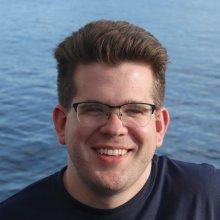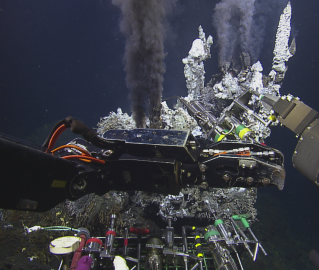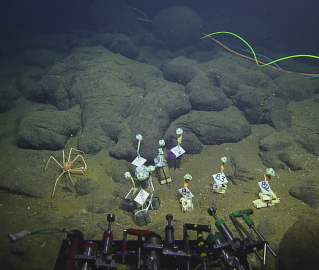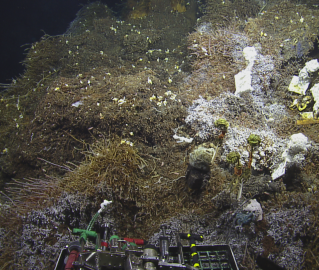
Alexander Havens
Tell us about your work/research. What kinds of things do you do?
The mission of the Alaska SeaLife Center is to generate and share scientific knowledge to promote understanding and stewardship of Alaska's marine ecosystems. My job as an educator is the sharing portion of that mission. I get to speak with the scientists at the Center and then share what they are learning with the public. I share that scientific knowledge in a variety of ways, from informal interpretation out by our exhibits to more formal programs such as dissections and other hands-on classroom activities. I also occasionally have the privilege to travel in-person to some of the more remote communities of Alaska to work with students in their own schools. Finally, the Alaska SeaLife Center also offers Distance Learning programs that allow me to connect remotely to students and classrooms around the world.
What sparked your initial interest in your career?
I have been fascinated with the ocean and enthusiastic about sharing that fascination with others for my whole life. My earliest memories are of exploring the tide pools of Neah Bay, Washington, where I spent my early childhood. Additionally, my favorite film as a child was "20,000 Leagues Under the Sea," Disney's 1954 adaptation of Jules Verne's science fiction novel of submarine adventure. From those early exposures, the mystery and majesty of the ocean hooked me right away, and I always wanted to share what I learned with those around me. Throughout the rest of my life, I sought out any and all marine-related media I could get my hands on - documentaries, films, books, and even video games. Most recently, programs like Nautilus Live beaming deep-sea exploration live into my living room have continued to fuel my fascination with the ocean.
Who influenced you or encouraged you the most?
My parents always supported my interest in the ocean, and they encouraged me as I pursued my desire to learn more and share what I found.
What element of your work/study do you think is the most fascinating?
Alaska has more coastline than the rest of the United States of America combined, and many Alaskans directly interact with the ocean in their lives. I love being able to engage with the scientists of the Alaska SeaLife Center about their work, but I have also learned a lot just by speaking with the students I meet around Alaska. Hearing, seeing, and even experiencing first-hand how people interact with the ocean - and what that interaction means to them - continues to be incredibly rewarding.
What other jobs led you to your current career?
Before becoming an Education Specialist for the Alaska SeaLife Center, I had a couple other experiences that I feel aided me in finding my way. I worked a summer as an intern with the Daly Mansion Preservation Trust, giving guided tours of the historic Daly Mansion outside of Hamilton, MT. This was my first taste of interpretation and education through public speaking, and the experience encouraged me to pursue an internship the next year with the Alaska SeaLife Center and Kenai Fjords National Park. That internship saw me presenting in a variety of settings, from giving presentations in a small auditorium to more informal interpretation on the deck of a tour boat. These experiences with public speaking and interpretation helped lead me to where I am today.
What are your degrees and certifications?
Bachelor of Science in Parks, Tourism, and Recreation Management - University of Montana 2014
What are your hobbies?
I love to spend the long Alaskan summer days hiking and exploring the natural world, and the long winter evenings are wonderful for playing board games with friends.
What advice would you give someone who wants to have a career like yours?
Always look for opportunities to learn more! Volunteer positions and internships are a great way to learn more about a job or an institution and to expand your own experience and discover how you want to share your talents. If you see a science communication opportunity - a volunteer position, internship, fellowship, or job - and you think to yourself "I want to do that," my advice is to apply. You never know where it might lead you and what you might learn.
How did you get involved with the Nautilus Exploration Program? How did you get on the ship?
After watching Nautilus Live online for years and learning about the Science Communication Fellowship, I applied to become a Fellow.
Expeditions
Alexander participated in the following Ocean Exploration Trust expeditions:



